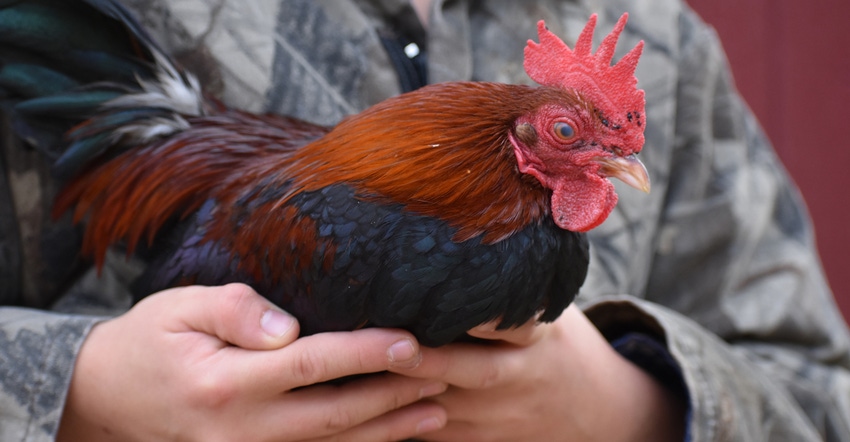December 19, 2017

By Caitlin Yoder
In 2015, the U.S. experienced its largest animal health emergency. Highly pathogenic avian influenza spread through commercial and backyard poultry flocks. This animal health devastation brought to attention the importance and benefits of premises registration.
In Indiana, producers can voluntarily register poultry operations for premises identification. The industry has largely adopted this practice. There are currently 10,000 premises voluntarily registered in Indiana, according to the Indiana State Board of Animal Health.
The Indiana State Poultry Association began collecting premises data in 1999, officials note. While it seemed scary to provide so much personal information at first, Paul Brennan, ISPA executive vice president, says there isn’t much questioning today that premises identification is necessary and beneficial.
Obvious benefits
“The commercial poultry industry has been registering for it for years, and then a few years ago, we reaped the benefits,” Brennan says. “Indiana’s quick response to HPAI [highly pathogenic avian influenza] in a backyard flock in 2015 and the commercial poultry flock in 2016 helped us immensely.”
Brennan believes it is unnecessary to make premises registration required for large poultry operations, because most of them are already registered. However, small backyard flock registration may be a benefit to both large and small producers. Registering backyard flocks may be a challenge because these flocks may not be permanent.
“From a practical standpoint, it wouldn’t hurt to make that move, and I venture to say that’s going to be happening,” Brennan says. “It would benefit the small producer for the same reason it benefits the larger producer.
“You can act on it,” he explains. “If you locate a diseased flock, and you know where the flocks are that surround it, then you can alert those people that they should take precautions.”
The ISPA is responsible for the National Poultry Improvement Plan, which is for disease control. Part of this plan was to start collecting premises data. The ISPA is also in charge of biosecurity education, which is important especially in cases like the HPAI outbreak in 2015.
After the 2015 outbreak in the Upper Midwest, many people in the industry recognized how premises identification is essential. The rapid traceback helps control the spread of disease. Most states didn’t have premises identification then. Brennan says when other states’ situations were compared to Indiana, the benefits were obvious.
Indiana leads the way
“You can go across the country, and anybody that works in this arena will tip their hat to Indiana because of our swift response,” Brennan says. “It’s an extraordinary advantage, and you don’t understand it until you need it; then you don’t forget how you needed it.”
Since the commercial poultry industry took the initiative and registered premises voluntarily, it’s now a question of whether registration should be required for small flocks.
Diseases can spread rapidly. There are many small flocks, and if they were registered, it could make the traceback of disease even quicker in another health emergency, Brennan says.
Although small flocks tend to move and change frequently, they could still benefit from premises identification, he believes.
Yoder is a senior in ag communication at Purdue University.
You May Also Like




